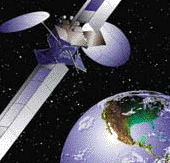|
|
|
Issue
1, Volume 11, January 2012
Title of the Paper:
Estimation of
Vehicle Parameters and Road Friction Using Steering Torque and Wheel Speeds
DOWNLOAD
FULL PDF
Authors:
Yao Li, Jianwu Zhang, Xiqiang Guan
Abstract: It is often difficult to measure all necessary parameters directly
in the current stability control systems. This paper presents a nonlinear
observer to estimate vehicle's yaw rate, lateral acceleration, tire side slip
angles and the road friction coefficient based on the measurement signals of
the Electric Power Steering (EPS) system and the Anti-lock Braking System
(ABS). The performances of the designed nonlinear observer have been
investigated by means of computer simulations and experimental tests under
various conditions.
Keywords:
Nonlinear observer, Brush tire model, Tire aligning moment, Steering torque,
Wheel speeds
Title of the Paper:
A Novel Method
of Dynamic Balance Weighting for Single-Disk Rotor System
DOWNLOAD
FULL PDF
Authors:
Zhao Qing-Liang, Wang Hua-Qing, Yao Jian-Fei
Abstract: Reasons for rotating mechanical vibration are varied, while the
situations on site show that the rotor mass imbalance is the main reason. A
novel method of dynamic balance weighting for single-disk rotor system based
on equivalent phase difference mapping is proposed. Firstly, the influence
coefficient method and its characteristics are analyzed. Secondly, principle
on how to measure phase by key pulse method and definition of phase are
introduced, and physical meaning of phase by Discrete Fourier Transform (DFT)
based on vibration signal triggered by key phase signal is analyzed in detail.
Thirdly, the equivalent phase difference mapping relationship between
incentive and vibration response for single-disk rotor system is proved by
differential equations and Laplace transform theory. Finally, a specific
application instance and procedure based on the proposed method are showed.
The new proposed method is simple and easy to peel the phase coupling
relationship between incentive and response, which can be used to guide
dynamic balance weighting for single-disk rotor system on site.
Keywords:
Dynamic Balance, Influence Coefficient, DFT, Laplace Transform, Equivalent
Phase Difference Mapping, Single-Disk Rotor
Title of the Paper:
Model
Development and Comparative Study of Bayesian and ANFIS Inferences for
Uncertain Variables of Production Line in Tile Industry
DOWNLOAD
FULL PDF
Authors:
Amir Azizi, Amir Yazid B. Ali, Loh Wei Ping
Abstract: The life cycle of tile products are decreasing especially for
customized products. The demand changes also fluctuate from time to time for
each product type. This phenomena created crucial issue in meeting customers'
demands within required due date. The occurrences of uncertain conditions
caused the production line performance not able to meet the requirement
because they faced uncertain changes in setup time, machinery breakdown time,
lead time of manufacturing, and scraps. Hence, an accurate estimation on the
production line in the presence of these uncertainties is required. Robust
decision making on production line could be made when an accurate estimation
of uncertain variables is modeled. Two approaches based on Bayesian inference
and adaptive neuro-Fuzzy inference system (ANFIS) were utilized in this study
for models development to estimate the effect of uncertain variables of
production line in the tile industry. The models were validated and tested
based on data obtained from a tile factory in Iran. The strength of our
developed models is that the coefficients of decision variables are
nonconstant. The best model was judged according to the mean absolute
percentage error (MAPE) criterion. The results demonstrated that the ANFIS
model generates the lower MAPE by 0.022 and higher correlation by 0.991
compared to the Bayesian model. Consequently, better decisions are generated
due to easier identification of uncertainty data and the elaboration made the
production planning process better understood.
Keywords:
Adaptive neuro-Fuzzy inference system, Bayesian, Uncertainties, Production,
Throughput
|
|
|


